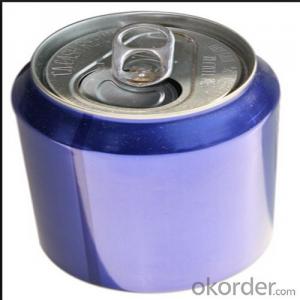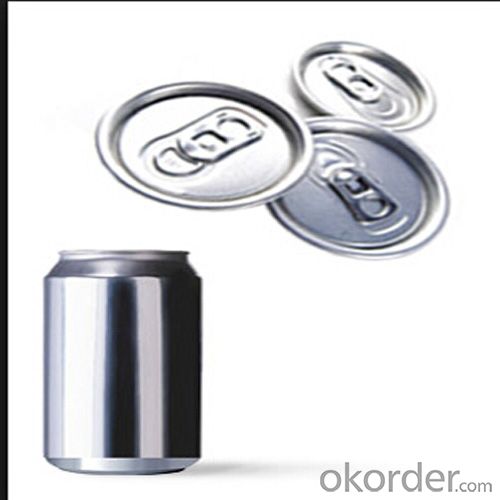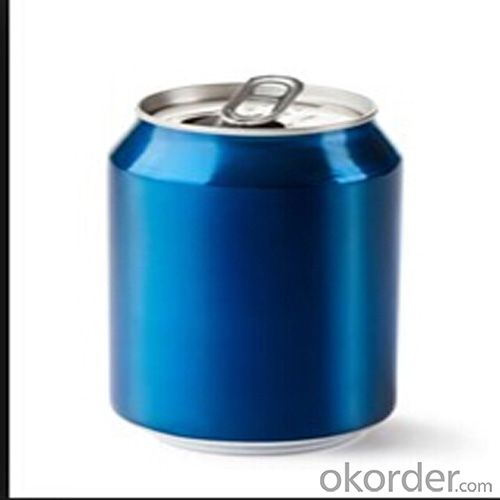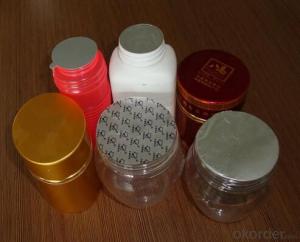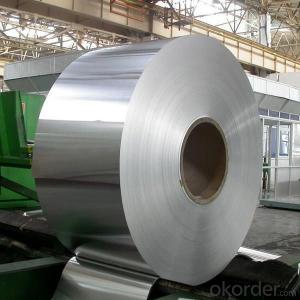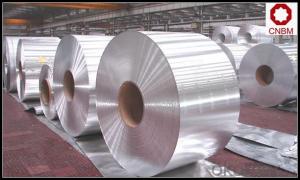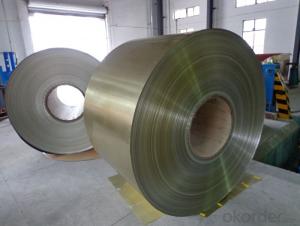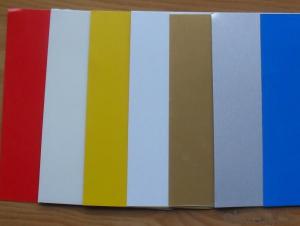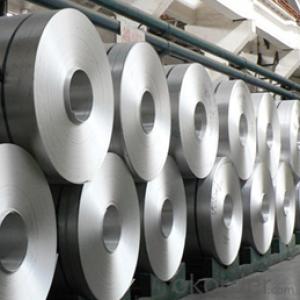020 Aluminum Coil in Alloy 8011 for Bottle Caps
- Loading Port:
- Shanghai
- Payment Terms:
- TT OR LC
- Min Order Qty:
- 5 m.t
- Supply Capability:
- 10000 m.t/month
OKorder Service Pledge
OKorder Financial Service
You Might Also Like
Specification
1.Structure of Aluminum Coil in Alloy 8011 for Bottle Caps Description:
We specially produce and sell all kinds of aluminum foil, coil, sheet and plate with different sizes and applications. For Foil product, the main gauge ranged from 0.006mic to 0.10mm, and width ranged from 200mm to 2000mm. Alloys are 1235/ 1050/1060/1200/8079/8011/8006 etc, and ID is 76mm, 152mm. The main application includes flexible package, cigarette foil, golden card foil, pharmaceutical foil, household foil, container foil, air conditioner foil, lid foil, beer mark foil etc. We also can supply aluminum coil, strip, sheet and plate in alloy of 1000 series, 3000 series, 5000 series, 6000 series and 8000 series etc.
2.Main Features of Aluminum Coil in Alloy 8011 for Bottle Caps:
1. level and smooth on the surface of the platel,
2. the plates' surface is clean without any corrosion, oil stain, puckering slits, scratches visible striation, roll-ed marks, shaken traces, cross grain or other defects. 3. no shipping spots, rolled marks, abrasive marks or dark lines.
4. no yellowish oil stains, bubbles or seams.
3. Aluminum Coil in Alloy 8011 for Bottle Caps Images:
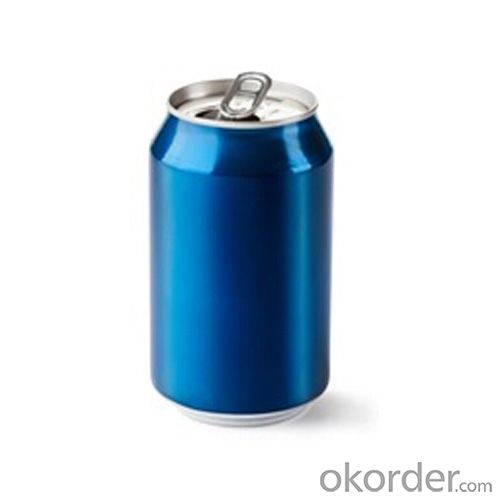
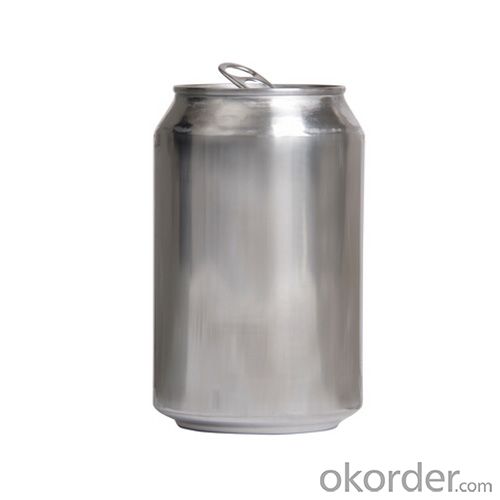
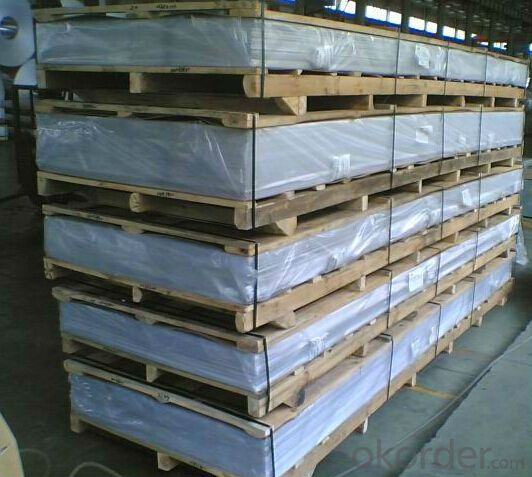
4. Aluminum Coil in Alloy 8011 for Bottle Caps Specification:
Mechanical Property for CC Materials of 8011 Aluminum plate | ||||
Alloy | Temper | Thickness (mm) | U.T.S (Mpa) | Elongation (%) |
8011 | H14 | 0.16~0.23 | 185~205 | >=2 |
Mechanical Property for DC Materials of 8011 Aluminum plate | ||||
Alloy | Temper | Thickness (mm) | U.T.S (Mpa) | Elongation (%) |
8011 | H14 | 0.16~0.23 | 125~155 | >=2 |
5.FAQ
Q1.How long have you been in this product?
A1:More than 10 years.
Q2. What's the minium quantity(MOQ)?
A2. 5 Metric tons
Q3. How long is shipping time?
A3. 7 (ready-made products)-25 days(OEM)
Q4. How do you guarantee the quality?
A4. 1. Cooperating and Exchaning experience with sevral quoted aluminum companies
2. Japanese and Swiss production line and skilled works (regular training and testing)
3. more than 10 years production experience.
Q5. Do you have after sale service?
A5. Yes. Any quality problem occurs within one year, pls take photoes,we will be responsible.
- Q: Are there any limitations on the width-to-thickness ratio of aluminum coils?
- Aluminum coils have limitations on their width-to-thickness ratio. This ratio greatly influences the strength and performance of the coils. If the ratio is too high, problems like buckling, warping, or even coil failure can occur. The specific limitations on this ratio depend on factors such as the alloy composition, temper, and intended use of the coil. Different alloys and tempers have varying mechanical properties and can handle different ratios. Moreover, specific applications like roofing, automotive, or packaging may have their own requirements for the width-to-thickness ratio. Manufacturers usually provide guidelines and specifications for acceptable ratios based on their products. These guidelines ensure that coils are used within their intended capabilities and prevent issues caused by excessive ratios. Users and designers must consider these limitations and guidelines when selecting and using aluminum coils. Failing to adhere to these limitations can result in compromised performance, increased risk of damage, and potential safety concerns. Therefore, consulting the manufacturer's recommendations and industry standards is crucial for determining the appropriate width-to-thickness ratio for a given application.
- Q: What are the width tolerances for aluminum coils?
- The width tolerances of aluminum coils can differ based on the specific application and industry standards. Generally, the typical range for standard width tolerances is between +/- 0.005 inches to +/- 0.020 inches. These tolerances guarantee that the width of the aluminum coil remains within an acceptable range and meets the necessary dimensions for the intended use. It is important to mention that tighter tolerances may be attainable depending on the manufacturing processes and equipment capabilities. Thus, consulting the appropriate industry standards and specifications is crucial in determining the precise width tolerances needed for a specific application.
- Q: What is the cost of aluminum coils?
- The cost of aluminum coils can vary depending on factors such as size, thickness, quality, and market conditions. It is best to check with suppliers or conduct market research to get an accurate and up-to-date cost of aluminum coils.
- Q: Are aluminum coils suitable for outdoor signage?
- Yes, aluminum coils are suitable for outdoor signage. Aluminum is a durable and weather-resistant material that can withstand various outdoor elements, such as rain, sunlight, and temperature changes. It is also lightweight, which makes it easier to install and transport. Additionally, aluminum coils can be easily shaped and formed into different designs, allowing for versatile and eye-catching signage options.
- Q: How to identify the quality of color coated aluminum coil and sheet?
- Color coated aluminum coil is a kind of aluminum coil. As for qualified color coated aluminum coil, the surface has no impression, holiday and damage through the coating, and also no ripple, scratch and swell. All these are easy to see. However, the most important is the color difference of the color coated aluminum coil which is not obvious but will influence the decoration effect. Now the surface of curtain wall aluminum sheet will also be treated with electrostatic spraying. The power coating materials can have dozens of colors and realize good decorative effect, with polyurethane, polyethylene expansion resin and epoxy resin as raw materials, high color retention pigment as auxiliaries.
- Q: Can aluminum coils be used in high-radiation environments?
- Yes, aluminum coils can be used in high-radiation environments. Aluminum has good radiation resistance and can withstand high levels of radiation without significant degradation or damage. It is commonly used in applications such as nuclear power plants and aerospace industries, where radiation exposure is a concern.
- Q: Aluminum roll 220 kg.0.3 thickness, 500 width, roll diameter is how much?
- You can use the outside diameter, the inner diameter and the width to get the volume. You know the density and volume, and then you can find the weight naturally
- Q: i have recently received a task to research the recycling processes of aluminum ..... the task also asks to STATE ALL RELEVANT MATHEMATICAL OR/AND CHEMICAL EQUATIONS ...when i researched the task i found how aluminum is recycled, but i couldnt find the relevant equations ...can you please help meall answers are really appreciated
- Aluminum okorder /
- Q: Calculate the specific heat of aluminum (in calories).mass of aluminum25.0 gmass of water23.2ginitial temperature of aluminum98.0Cinitial temperature of water20.0Cfinal temperature of water33.0Cround to three decimal places, do not include units.
- Heat gained by water = heat lost by aluminum Heat = H mass = m specific heat =c change in temperature = dT H = mcdT mcdT for water = mcdT for Al (23.2)(1.00)(13) = (25.0)(c(Al))(33-98) c(Al) = (23.2)(1.00)(13)/(25.0)(65) = 0.186 This value is just a bit below the known value of specific heat for aluminum, where c = 0.217 cal/g.C
- Q: Is it safe to use aluminum coil for food storage?
- <p>Using aluminum coil for storing food is not recommended. Aluminum can react with acidic or alkaline foods, potentially leaching aluminum into the food. This can be harmful to health, especially over time. Instead, opt for food-safe materials like glass, stainless steel, or BPA-free plastics for food storage to ensure safety and prevent contamination.</p>
Send your message to us
020 Aluminum Coil in Alloy 8011 for Bottle Caps
- Loading Port:
- Shanghai
- Payment Terms:
- TT OR LC
- Min Order Qty:
- 5 m.t
- Supply Capability:
- 10000 m.t/month
OKorder Service Pledge
OKorder Financial Service
Similar products
Hot products
Hot Searches
Related keywords
